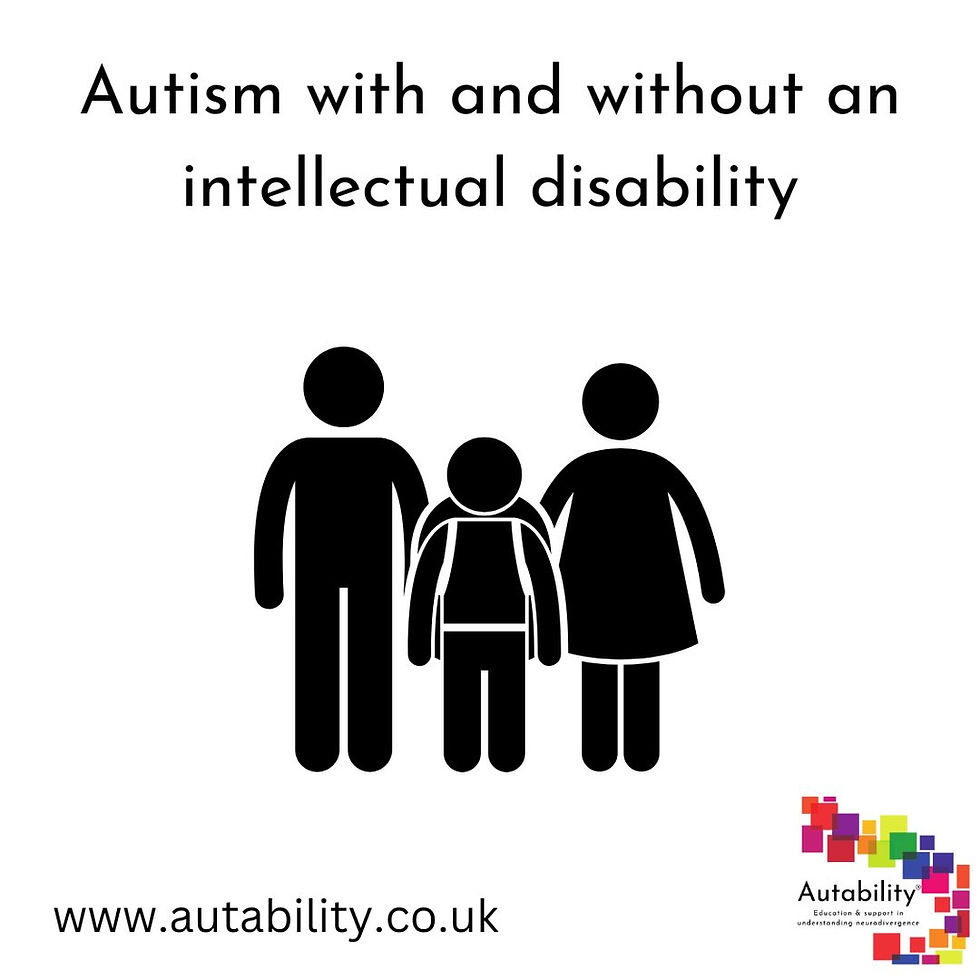Autistic children & friendships outside of school
- Autability

- Jun 18, 2025
- 3 min read
Many parents of autistic children notice something that can feel quite puzzling. Their child seems to get along well with certain classmates at school, but becomes anxious, confused, or reluctant when those same friends want to meet up outside of school.
One of the key features of autism is something called rigidity of thought, which means many autistic children think in very literal and specific ways. For them, certain people and situations often belong in one place, and one place only. So while it might feel completely natural to us that a school friend could also visit home or meet at the park, for your child it can feel "wrong" because it doesn't fit with how they understand that relationship. In their mind, this friend belongs at school — not at home or the café.
There are several reasons why this happens. School offers a very predictable environment. Your child knows when they will see their friend, what activities they’ll do together, and how those interactions usually go. Outside of school, all of those familiar rules and routines disappear. The situation feels unknown and uncertain, which can be very unsettling.
Many autistic children create little "social scripts" for different situations. They may know how to talk and play with a classmate at school, but haven’t worked out how to interact with that same friend in a totally different setting. It’s not that they don’t like the person, it’s that they don’t yet have a script for what to do in this new situation.
There’s also the mental energy involved. Social interactions can take a lot of processing for autistic children. At school, they are already in "social mode" and following familiar routines. Outside of school, they may be in "home mode", where they feel safe, calm, and don’t need to use that same level of energy. Mixing the two can feel exhausting or overwhelming.
You might notice a few signs if your child finds this tricky. They might talk happily about friends at school but resist any plans to meet up outside. They may seem confused or uncomfortable when you suggest playdates or outings. Or they may behave very differently around their friends outside of school compared to how they act during the school day. Some children may even say quite directly, “I only like playing with them at school.”
So how can we support them? One of the most helpful things we can do is to work with how their brain naturally processes situations. Acknowledge how they see things: “I understand you think of X as your school friend. That makes sense because that’s where you know them.”
Then, if they are open to trying, gently help them make connections between settings: “Remember how you and X both love dinosaurs at school? Maybe they would enjoy seeing your dinosaur books at home too.”
For some children, friendships may always stay within school, and that’s absolutely fine. Not every friendship needs to extend beyond school hours. With patience and support, some children may choose to expand their social world as they grow, but others may not — and both are equally valid.
Most importantly, respect your child’s boundaries. If they consistently find out-of-school friendships too stressful, it’s perfectly okay to focus on supporting their school friendships and finding social opportunities that feel safe and comfortable for them.

.png)


Comments